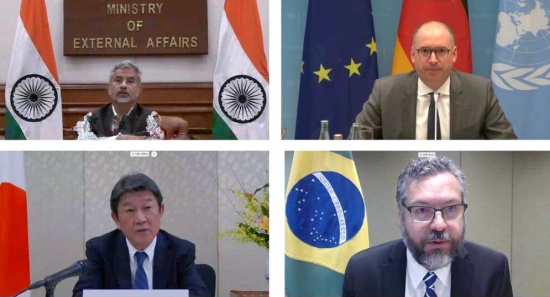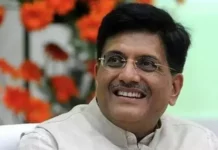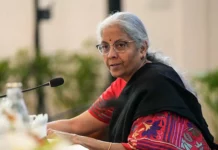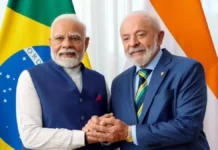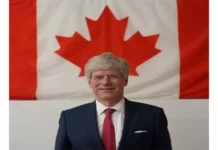UNITED NATIONS: India’s External Affairs Minister S Jaishankar and the foreign ministers of Brazil, Germany and Japan, whose countries make up the G4, decried on Wednesday the attempts to derail Security Council reforms and said they would take it up with a sense of urgency during the UN’s 75th anniversary year.
“G4 Ministers expressed disappointment at attempts to derail this process and committed to addressing the issue in a meaningful way and with increased urgency at this 75th anniversary of the UN,” according to a joint statement distributed by Germany’s UN Mission.
Foreign Ministers Ernesto Henrique Fraga Araujo of Brazil and Toshimitsu Motegi attended the virtual G4 meeting, while German Foreign Minister Heiko Maas was represented by Minister of State Niels Annen.
The ministers, whose countries work together for Security Council reforms and mutually support each other for a permanent seat on a reformed body, kept the annual tradition of meeting on the sidelines of the UN General Assembly’s high-level session, which has gone digital this year.
Jaishankar tweeted after the meeting, “Participated in #G4 Foreign Ministers Meeting that called for a decisive push for UNSC reforms during #UN75. Unanimous call for text-based negotiations in a fixed time frame. Reformed Multilateralism guides India’s approach to the United Nations.”
The joint statement said, “G4 Ministers are convinced that time has come to leave behind debates based solely on general statements, without substantive text-based negotiations actually taking place in an intergovernmental setting.”
The reform process has been blocked by a small group of countries, Uniting for Consensus, led by Italy and including Pakistan that uses procedural tactics to prevent the adoption of a negotiating text that can move the negotiations forward.
A negotiating text that lays down the agenda and the points of agreement and the differences is needed to continue the negotiations meaningfully.
The G4 ministers noted that the 75th Anniversary Declaration adopted by world leaders on Monday committed them “to instil new life in the discussions on the reform of the Security Council.”
During the last session of the General Assembly that ended earlier this month, the negotiations had hardly gotten off the ground when the COVID-19 pandemic led to a shutdown of the UN building in New York.
The G4 Ministers dismissed the pandemic as an excuse to have curtailed the negotiations.
They expressed their concern at “the lack of any meaningful movement forward in the Intergovernmental Negotiations (IGN) on Security Council reform and expressed their concern that – after two sessions in February and March – the IGN was adjourned due to COVID-19 and no further meetings were held thereafter. However, virtual meetings or a written process could have taken place to allow for progress to be made in the previous session.”
“The IGN in the current session should start immediately as a direct continuation of the previous session,” they said.
The ministers said, “There is a clear need for an enhanced role of developing countries and of major contributors to the United Nations to make the Council more legitimate, effective and representative. Africa needs to be represented in both the permanent and non-permanent categories of membership of a reformed and expanded Security Council to correct the historical injustice against this continent with regard to its under-representation in the Security Council.”
African countries made the case for getting proper representation for the continent on the Council during the first day of the General Assembly’s high-level meeting on Tuesday.
Nigeria’s President Muhammadu Buhari said the Council must be reformed “to reflect the diversity and dynamics of the 21st Century. Africa deserves permanent seats in the United Nations Security Council.”The view was echoed by several others like Presidents Joao Manuel Goncalves Lourenco of Angola and Abdel Fattah el-Sisi of Egypt.
The G4 statement said, “The Ministers expressed their determination to seek concrete outcomes during the 75th session of the General Assembly, instructing their delegations to support the efforts of the President of the General Assembly (Volkan Bozkir) to promote early reform of the Security Council.”
The ministers reiterated their support for each other’s candidatures for permanent seats on a reformed Security Council, the statement said.
Bozkir, the Turkish diplomat who will oversee the reform process during the Assembly’s current session, had said earlier, “There is no doubt that the membership of the Security Council as well as its working methods must reflect the realities of the 21st century.””Security Council reform is very important, not only for the member states but also to the United Nations as a whole,” he said, giving an assurance that he will promote the Security Council reform process impartially.
Turkish President Recep Tayyip Erdogan said, “We must rapidly implement comprehensive and meaningful reforms, starting with the restructuring of the Security Council.”

